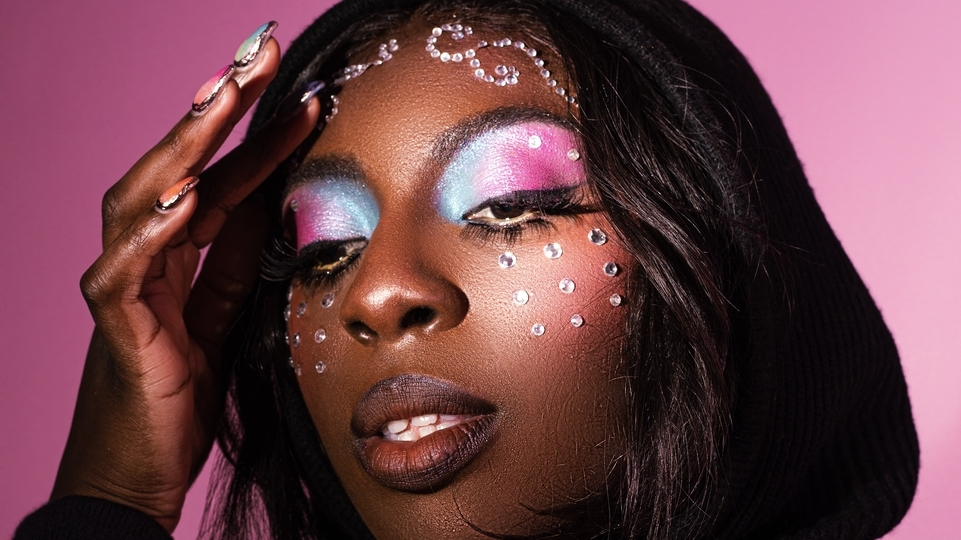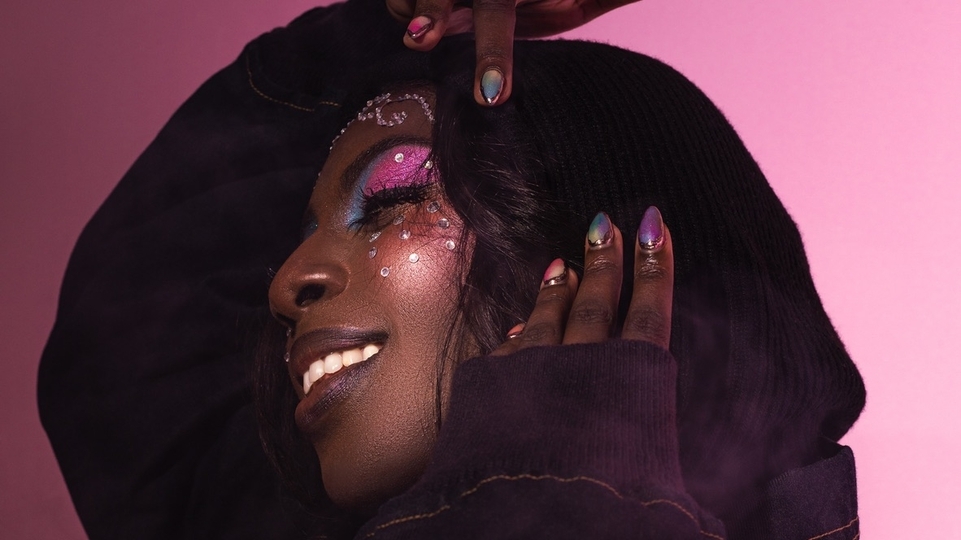
In conversation: Anz & DJ Paulette
Two generations of Black women speak about their experiences in dance music
After reflecting on how we can tackle the issues around racism and racial injustice within the electronic music industry as a publication, we delivered our pledge to you earlier today (Monday 20th July), presenting significant changes within the company in order to better represent the scene — from the way we do business, to who we work with, and give coverage to.
In the return of our UK print magazine, we wanted to primarily focus on highlighting Black perspectives and experiences, in order to address ongoing problems throughout different areas of the electronic music industry, celebrate those who are driving change, and present resources and ideas for direct action our readers can use to help enact change themselves.
Our platform would not exist without the Black culture that has driven the electronic music scene from its beginning, and the Black artists who continue to push it forward today.
We recognise that there is still work to be done to ensure we provide the best possible platform for voices from marginalised communities, and stop being complicit in practices that perpetuate systemic issues within our industry and wider society.
Running over the next two weeks, the content from our special edition on fighting racism and racial injustice within dance music features artists and writers from across the musical spectrum.
To open, we have two Black women, DJ Paulette and Anz, in conversation. They come from different generations of electronic music, but are both crucial to the UK scene. DJ Paulette is a trailblazer of British dance music. Over the past 30 years, she has been a resident at iconic clubs like the Haçienda, Heaven, Ministry of Sound and across Ibiza. Manchester-based DJ and producer Anz has become one of the most hotly-tipped new artists around — her vibrant releases and all-production mixes have propelled her, touring across the UK and Europe. We sat down with them to discuss electronic music’s reaction to the Black Lives Matter movement, their experiences as Black artists and their hopes for the future.

“I was written out of the history of raving in Manchester, and I’ve spent the last four years writing myself back in. When your name’s on every flyer and every poster, but in every single book [about it], you don’t exist? That’s bullshit" — DJ Paulette
How have the anti-racism actions, protests and conversations affected you? Have you sat with yourself, thought about things from your past, and said, ‘Oh my god, that really did happen to me’?
DJ Paulette: “It has affected me enormously. As the Black Lives Matter movement has taken hold in the Black British community, we’ve all spoken to each other. Family and friends have called me in trauma, in crisis; as we’ve discussed it between us, it’s bled through to social media. The death of George Floyd was a trigger. Now, people have to start listening to people outside their own communities. How many times does this need to happen before something gets done?”
Anz: “At first it was between me and my Black friends and colleagues, checking in with each other — ‘Do you also feel really bad, all the time?’ The death of Ahmaud Arbery sucker-punched me. I watched the video of his murder and felt the air leave my body. I stayed in bed all weekend. When I went into work that Monday, everyone was cheerily like, ‘Oh, how was your weekend then?’, and I didn’t know how to tell them that my weekend was horrible for reasons that were very specific to me as a Black person.
“Beyond the brutality, it’s been strange to live alongside people reckoning with their guilt. I’m so visibly Black. I’m unmistakably Black. But I’m also not the loudest person in the room when it comes to racism because I don’t know who I can trust with my feelings. It’s been interesting to find my voice lately.”
Paulette: “Yes, it almost feels like we’re allowed to talk about it now. We can say that this is real because we can all see that it’s real. We don’t have to prove it anymore.”
How have you found seeing white friends and colleagues post about the movement on social media, maybe positioning themselves as anti-racist? And have you read some of these posts and thought to yourself, ‘I know you’ve been racist to me, I know you’ve treated me badly’?
Paulette: “That’s hard, that’s really quite hard. But, you know, everyone is entitled to change. There’s a weird dynamic in play: when we say something racist has happened to us, we’re always told that it hasn’t; but when people treat us badly, we have to give them the benefit of the doubt or we’ll be seen as difficult. It’s a strange scenario because the forgiveness has to come from us and the change has to come from them.”
Anz: “You’re probably kinder than I am. I can forgive people, but I have a hard time forgetting. I’ve seen lots of people come out and say, ‘I, too, am an ally!’ But I’m like, ‘I know you outside of the internet, I know you’re not.’ I’m not the type to put someone on blast, but there are certainly people and organisations that have made me raise my eyebrow lately.”
What are some experiences you’ve had as touring DJs that don’t even register with white people, but have stayed with you and impacted your work?
Paulette: “I’ve lived in France, the UK and Ibiza, and the place I found the most racist — and it was a very insidious kind of racism — was Ibiza. When I tell people that, they go, ‘Oh no, that can’t be! It’s great there!’ And I think, ‘Of course it’s great for you, you’re white’. You don’t know that, when I applied for jobs, people thought I was the lucky-lucky girl off the beach. The way they treat Black people on that island, unless you are a AAA-list celebrity or headliner — it’s as if you’re nothing.
“When I tried to get DJ bookings in Ibiza, I was continually told — and this is a direct quote from dozens of promoters — that my experience was ‘irrelevant’. Everything I knew as a PR and a DJ was irrelevant, and when you’re in Ibiza you ‘start from scratch’. How does an industry like Ibiza get to that point? How many hoops do I need to jump through to get less of a job? They’re hiding something.”
Anz: “I was talking to someone recently about playing shows in provincial places, and when well-meaning promoters don’t realise that where they live is pretty racist. I’ve been chatting to people more experienced than I am about how to write into my contract ways to keep me safe in those scenarios. When a promoter says, ‘Oh, the hotel’s only a 15-min walk away from the venue’, I want to insist, ‘No, I need a lift back, I don’t feel safe walking around at night by myself’, or ‘No, don’t just drop me off in the middle of nowhere in this town’.”
Paulette: “I played in Russia a lot in the early- to mid-’00s, and I’d be the only Black person in the room when I was DJing and the only Black person walking around Moscow or St. Petersburg the next day. And I don’t go quietly. I’m there in a yellow puffa jacket and china bumps in my hair, asking the hotel receptionist why there’s ‘a problem with my reservation’ and getting treated like a prostitute in the hotel lobby. It’s not that we don’t want to play these places! But agents and promoters do have to think, when they’re sending Black people to different places, what those places are really like for Black people.”


"Earlier this year, Honey Dijon tweeted, ‘Where are all the Black girls?’ When I was making my 2020 plans, I knew I had to seek out the Black parties because, otherwise, I might be erased” — DJ Paulette
You’re both in Manchester, a city whose dance music history has largely been looked at through a rose-tinted lens. Fun, wild and utopian — yes, but for who exactly? Paulette, has that history done a disservice to you as a Black woman?
Paulette: “I was written out of the history of raving in Manchester, and I’ve spent the last four years writing myself back in. When your name’s on every flyer and every poster, but in every single book [about it], you don’t exist? That’s bullshit. DJ Hewan Clarke and I have been written out of the history of the Haçienda completely. There were zero column inches written about us, and it’s been a vocal crusade of mine to put that tiny little sentence of recognition in — that we were there.”
Paulette, the ripple effect of what you experienced hasn’t been acknowledged or tackled. Anz, you’re coming up in a new generation. When you’re with young people in the scene, who act as if their youth and presence in the scene alone is proof of their anti-racism, how have you navigated that?
Anz: “Every generation has an impression of themselves, of how they are and act — ‘We’re not like old people, we’re different, we’re forward-thinking!’ — but it’s just history repeating itself. What makes me sad is seeing younger ravers and artists talking about ‘keeping politics out of music’. It seems as if there’s a minority of young people who are engaged with the issues and care about others, and a majority who don’t give a fuck.
“The latter may even be running parties and complain about ‘having to book someone because they’re a woman or Black’, and say coded things about [Black women] like ‘Oh, she’s actually a decent DJ you know!’ — well, why wouldn’t I be? I’m disappointed to see it in younger people because we have more access to information than any previous generation. Can you not just take a moment and... read something?”
Paulette: “I’m reading this book right now called White Fragility, and the author talks about exactly this — the perpetuation of racism by people not actively, vocally being racist, or perpetuation of sexism by not actively, vocally being sexist. A booker will say, ‘So, we have to give this gig to a woman or a Black person? No, we’re not going to do that. We’re all about equal opportunities and talent.’ But actually, in not facing what they’re doing, they’re perpetuating racism and sexism, and making it more entrenched and difficult for people to get gigs on merit. People are lazy and all of this requires work. It requires pissing off corporations, even cutting off the hand that feeds you. But they’re worried that they’ll lose money and connections by changing, so they’d rather stonewall people.”
Racism is being talked about across industries. Have you been thinking about what dance music really looks like today? Many people right now are saying, ‘Save our scene! Donate to this club!’ But many people are also saying, ‘Why should we? It’s been horrible for us.’
Paulette: “It’s not just about talking, it’s about listening and understanding. As Black people, we understand where you’re coming from, but no-one is trying to understand where we’re coming from. Derrick May, Jeff Mills and Derrick Carter will get all up in themselves and say, ‘Look, if we can’t be treated with respect, there’s a problem. We can fill these parties, but we’re not even getting booked, so what hope is there for smaller Black artists?’ Earlier this year, Honey Dijon tweeted, ‘Where are all the Black girls?’ When I was making my 2020 plans, I knew I had to seek out the Black parties because, otherwise, I might be erased.”
Anz: “We joke about burning it all down, but there are little fires starting. This year has shaken this industry in a way that I’ve never witnessed before. Some fires are burning hotter and brighter than others, and some people are just waiting to strike a match and say, ‘This is rotten too, so is this’, and start more. It’s a clearing. It’s about what we build in its place.”
Paulette: “When you point out an industry problem, what usually happens is that a company apologises by throwing money at organisations for people who have got caught on the wrong side of it. Now, I’m not ungrateful for that. But it would be more useful if those companies started employing more Black, brown and Asian people, men and women, to balance this shit out. Put them in positions of power where they can make the decisions that enable change to take place.”
Anz: “People will ask, ‘What can we do, how can we fix it?’, and it’s easy — just hire Black people and mean it. That’s the most important thing. Companies will hire Black people for diversity reasons, don’t know how to treat them, and then they quit or are pushed out because of racism, and it’s back to the start again.”

"I have so much respect for Frankie Decaiza Hutchinson of Discwoman, because she puts up with so much vitriol and poisonous rage because she, and Discwoman, dare to exist" — Anz
What do you think about Black-run and Black-owned structures like agencies in dance music — is that something you’d like to see more of? And if so, have you considered taking on such roles yourself?
Paulette: “Yes, I’ve often thought about doing this, but why haven’t I done it? Because when I’ve had the meetings with various managers, all of whom were white, it didn’t leave me with a good sense of where I’d be alongside them.”
Anz: “You have to ask yourself, ‘Do I even have the strength to do this?’ It’s one of the biggest reasons that I have so much respect for Frankie Decaiza Hutchinson of Discwoman, because she puts up with so much vitriol and poisonous rage because she, and Discwoman, dare to exist.”
Paulette: “Sitting back now, I realise that I’m afraid of doing it. With my 30 years of working in the industry, and 20-odd years of DJing, I can see where the pitfalls are in everything and I’m actually afraid of working in that sphere. In all honesty, Anz has inspired me. Anz, you’ve truly helped me and introduced me to other amazing Black girls. I’m really thankful.”
Anz: “Oh I’m so touched by that, thank you.”
Paulette: “Honestly, it’s the first time in my life that anyone has actually done for me what they said they’d do, and for that to come from a Black sister — it blows my mind. That’s what I want to take from all of this — we have to help each other. We can set up our own businesses, but if you work in isolation you’ll be stonewalled.”
Anz: “Sometimes it gets tiring waving your own flag, so it’s nice to have others do the heavy lifting and wave it with you.”
Paulette: “Exactly. I’ve sat on it, I’ve taken it, I’ve painted a picture of myself like everything’s alright — but nobody sees me when I go home, shut the door and cry. We can share those experiences now, and start healing.”
What do you, in all of this, feel positive about?
Anz: “I’m looking forward to Black people doing their own things. I’m looking at what the next year or two might look like for me, and holding back some of the releases I had planned — like, ‘Hang on a second, I could just put this out myself?’ I’ve been thinking about why it was that I sought certain kinds of industry approval, pushing for a label or agency, and if I can’t think of a good answer for it now then there’s no reason why I can’t do it myself.
“There’s a lot to be said about people not being afraid of parity. Lots of white people don’t even realise what they sound like when they discuss Black artists or innovators. They speak about them like they’re these shiny, extraordinary things, not real people who are dragged down no matter what impact they’ve had on electronic music. They’re scared for Black people to stand as equals. That’s why Black people will get internships but not leadership positions — ‘right, stay there, that’s close enough for us’.”
Paulette: “My hope is twofold: that people start to listen to us, and look at themselves as part of the problem. Racism isn’t about good and bad people. It’s about actions within a system, and both have to change.”





